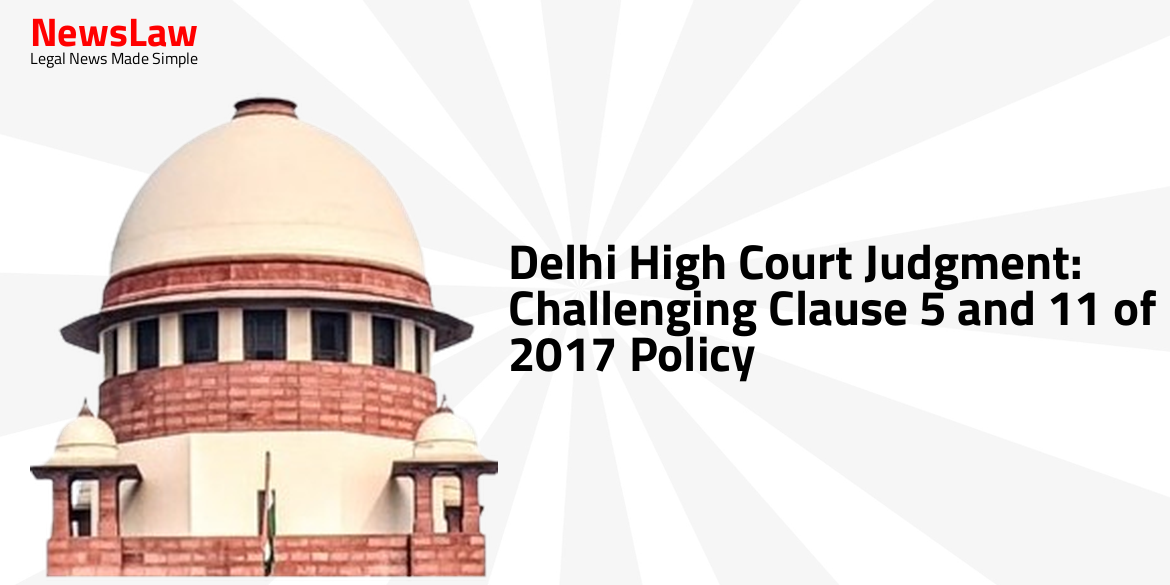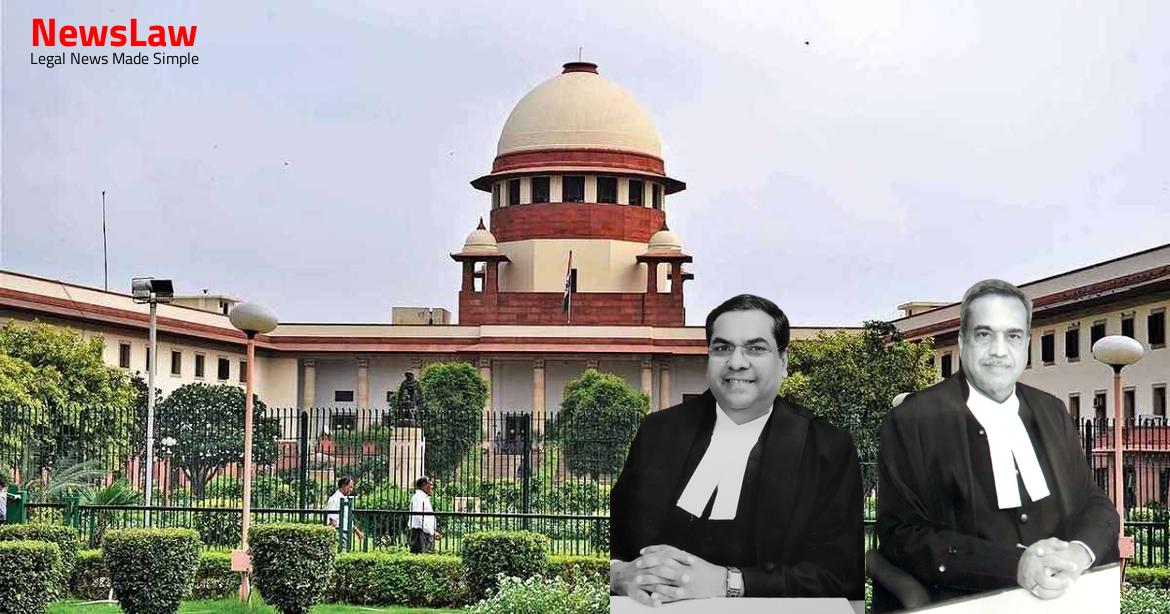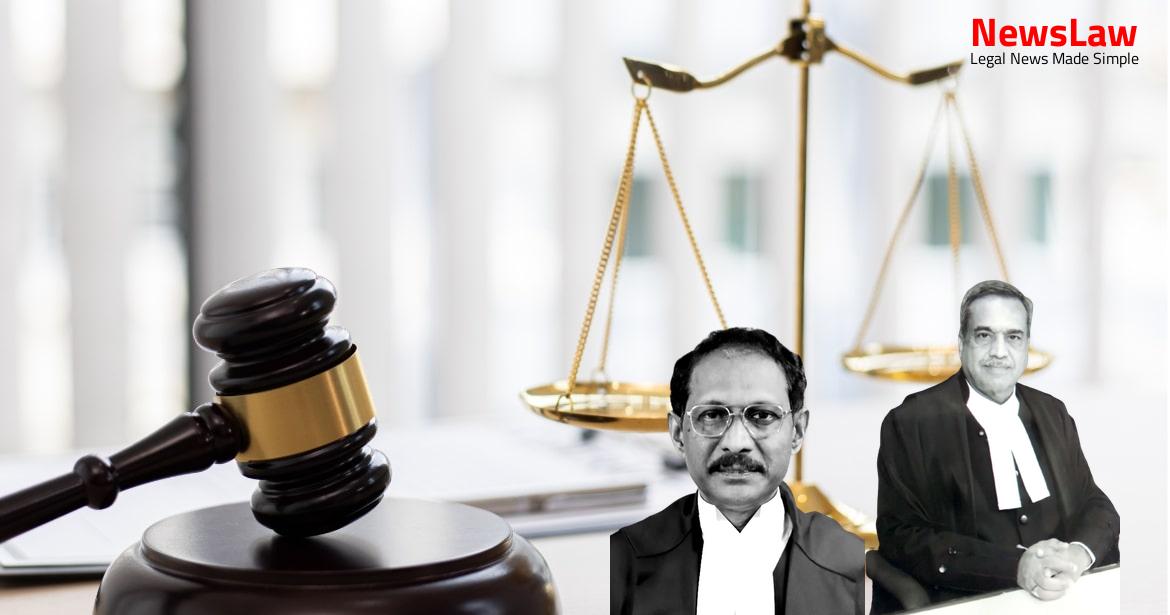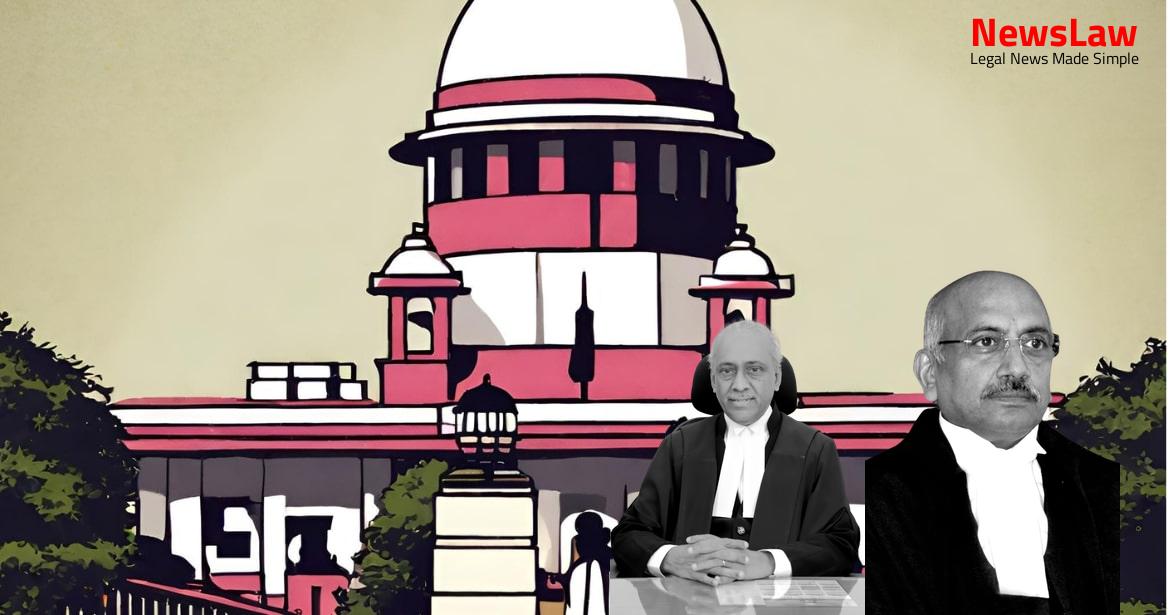In a significant ruling by the Delhi High Court, the challenge to Clause 5 and 11 of the 2017 Policy has been addressed. The case involves petitioners who operate multiple MPS at different railway stations, contesting specific clauses of the policy. Stay updated on the court’s decision regarding the challenges raised by the petitioners against the clauses in the 2017 Policy.
Facts
- The petitioners were forced to convert their stalls/trolleys to MPS in 2017 by Northern Railway based on Commercial Circular No 61 of 2017.
- The tenure of the petitioners’ licenses was initially until 21.12.2022, but was extended until 27.02.2023 due to the Covid-19 lockdown.
- The petitioners operate multiple MPS at different railway stations.
- The impugned Master License Agreements and extension letters have been challenged in the petition.
- The petitioners were directed to vacate their MPS by 27.02.2023
- Specific Master License Agreements were executed between each petitioner and Northern Railway on different dates.
- The petitioners have challenged Clause 5 and Clause 11 of the 2017 Policy issued by the Railway Board in Delhi.
Arguments
- The petitioners argue that the respondents should renew their licenses based on a Supreme Court judgment.
- They claim that the actions of the respondents in not renewing certain licenses are arbitrary and violate fundamental rights.
- The petitioners assert that the 2017 Policy is unfair as it prevents license renewal and forces competition against larger companies.
- They argue that they were coerced into converting their stalls to MPS units and that this conversion violates constitutional rights.
- The petitioners expect the respondents to permit license renewals for their lifetime and future generations.
- They object to the short extension granted in response to Covid-19 and argue for a proportional extension based on reduced fees.
- The petitioners challenge specific clauses of the 2017 Policy as arbitrary and discriminatory.
- They believe they were misled about the renewal terms under the new policy.
- The petitioner cannot seek to revert back to a previous policy after completing a contract under a different policy.
- The petitioner signed a non-renewable contract for a period of five years and cannot now claim ignorance or change in policy.
- The Karnataka High Court rejected the petitioner’s argument of non-renewal of license based on a Supreme Court judgment regarding Catering Policy, stating it does not apply to the Multipurpose Stall Policy in the case.
Analysis
- The Court has jurisdiction to entertain the writ petitions challenging Clause 5 and Clause 11 of the 2017 Policy.
- The letter dated 21.05.2020 considers the variations across stations regarding the impact of Covid-19.
- The petitioners voluntarily converted their stalls/trolleys to MPS based on the 2017 Policy.
- The policy decision to re-tender all MPS units after tenure expiry does not deprive the petitioners’ right to livelihood.
- A license does not create an interest in the property, as highlighted by Shri Nariman.
- The 2017 Policy explicitly states no extension or renewal of MPS units; existing licensees can bid if eligible.
- The petitioners cannot claim a permanent right to seek renewal or extension of their licenses indefinitely.
- The Supreme Court held that license renewals were allowed under the 2010 Catering Policy, but the 2017 MPS Policy does not allow extensions.
- Challenges to Clause 5 and 11 of the 2017 Policy are deemed unsustainable.
- License extensions were granted for 68 days due to a force majeure event (Covid-19 lockdown).
- Railways implemented force majeure for non-operational contracts during the lockdown period.
- The Court has jurisdiction based on Article 226 (1) as the authority to issue a writ is within its territorial limits.
- Zonal Railways extended license periods based on ground realities and passenger traffic restoration.
- State’s obligation to eliminate inequalities in opportunities is highlighted in Article 38 of the Constitution.
- Force Majeure clause was invoked for lockdown period due to Covid-19 for catering and vending contracts.
- The applicant agreed to conversion rules and paying revised fees along with arrears.
- The petitioners’ contentions about being compelled to convert stalls/trolleys to MPS are not sustainable.
- Different dates for stall operation and passenger traffic restoration existed across stations.
- Petitioners have not challenged the letter outlining force majeure implemented by the Railway Board.
- The court cannot legislate but can issue writs for enforcement of equitable rights in exceptional cases.
- Zonal Railways determined non-operational contract periods independently based on due diligence.
- The 2017 Policy ensures adequate livelihood opportunities, especially through reservation provisions.
- A license gives the right to use immovable property and can be revoked at the grantor’s will.
- Challenging a policy decision for infringing rights requires specific pleading of undue influence or coercion.
- The relevant extract from the judgment states that the content of part (STA) is being summarized.
- The summary points will be listed in this format.
- Original names should be used instead of generic terms like Respondent No 1 or Petitioner No 1.
- The summary is intended to provide a concise overview of the key points in this specific part of the judgment.
- A writ of Mandamus cannot be issued to direct the Respondents to enact law or frame rules.
- Mandamus is for enforcing fundamental rights, statutory rights, or duties related to them.
- Judicial review of a policy decision is distinct from issuing mandamus to frame a policy in a specific manner.
- Courts can interpret laws and have the authority to declare laws unconstitutional.
- Legitimate expectations do not always entitle relief; public interest, policy changes, or valid reasons by the decision-maker can negate them.
- Public bodies cannot arbitrarily decline to renew licenses; decisions must have rational purpose unless compelling reasons show otherwise.
- Individual license agreements and the 2017 Policy both contain an arbitration clause.
- The arbitration clause can be invoked by petitioners if they are aggrieved by the insufficiency of extension due to the Covid-19 situation.
- Petitioners can also invoke the arbitration clause if they wish to claim damages for any reason.
- Petitioners are at liberty to initiate appropriate proceedings through the arbitration clause.
Decision
- Existing stalls and trolleys have the option to convert to Multipurpose Stalls (MPS) by paying the quoted License Fee for a 5-year tenure from the date of conversion.
- If not opting for conversion, existing stalls/trolleys can continue until the expiry of the current agreement.
- The Multi Purpose Stall policy supersedes previous policies like the Chemist Stall Policy 2000, Bookstall Policies of 2004, etc.
- Petitioners chose to convert their stalls/trolleys to MPS for the benefits offered by the 2017 Policy.
- Petitioners have a 3-month transition period to vacate stalls from the date of extended license period or the judgment date, whichever is later.
- No new allotments or renewals for existing stalls until they opt for conversion into MPS as per the policy.
Case Title: DILIP KUMAR SINGH & ANR. Vs. UNION OF INDLA, & ORS. (2024:DHC:4452)
Case Number: W.P.(C)-14837/2023



